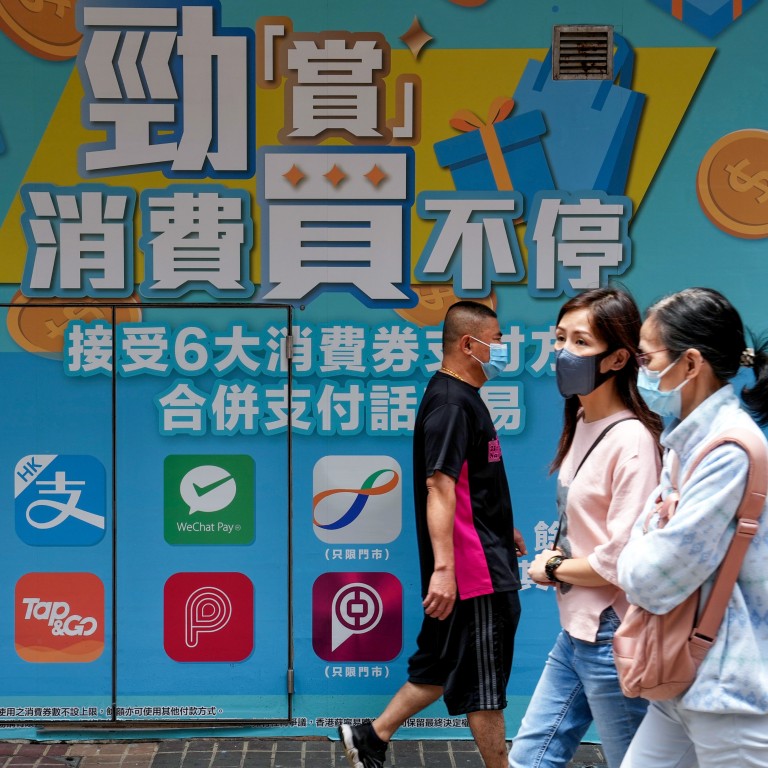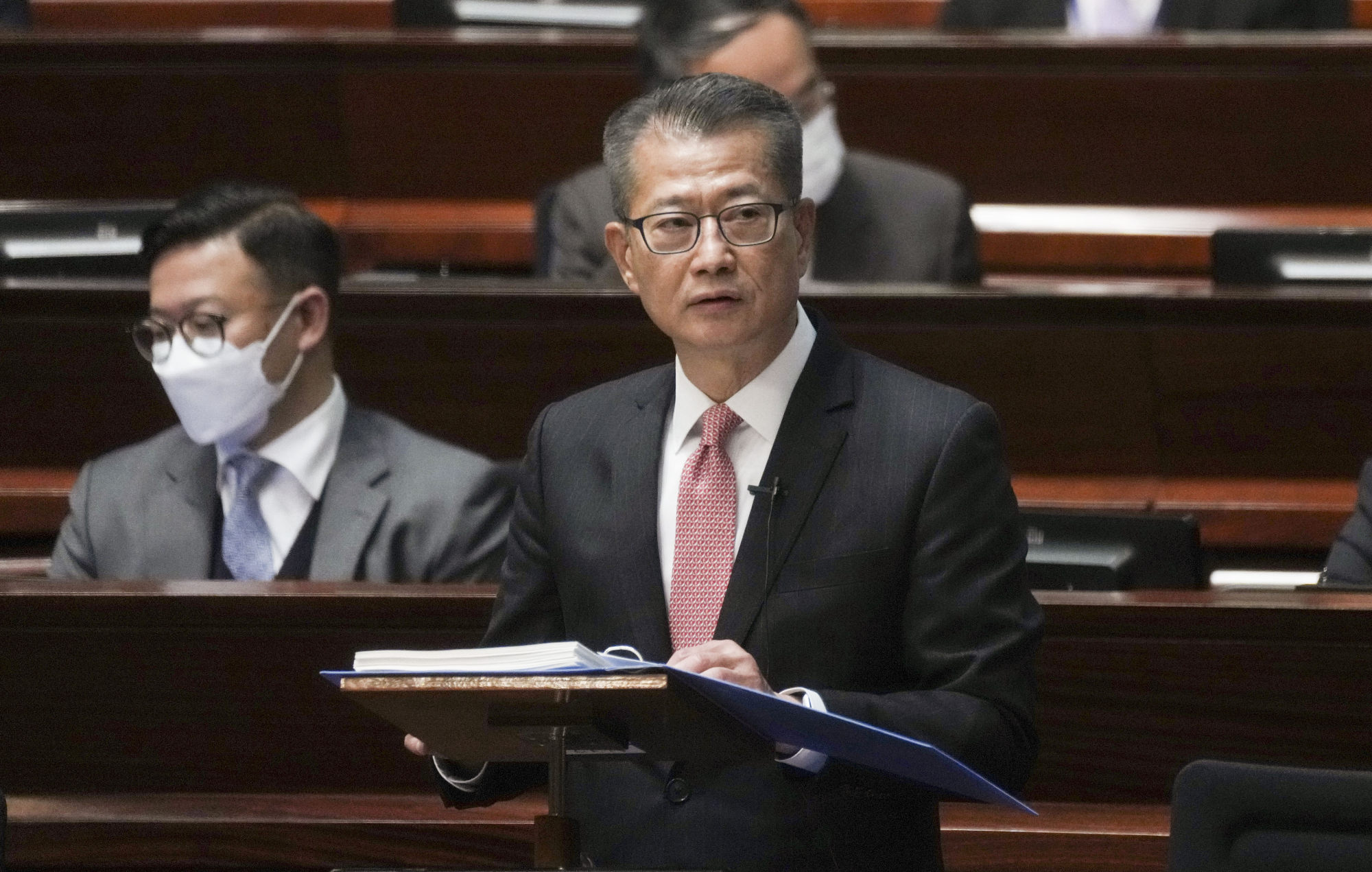
Finance chief Paul Chan signals optimism about Hong Kong economy and predicts growth of up to 5.5 per cent this year if global situation remains stable
- Chan upbeat about city’s prospects after Legco approves budget by 82-0 majority
- Finance secretary says more support for domestic consumption on cards as city fights to bounce back from Covid-19 economic damage
Hong Kong’s financial secretary has said he is optimistic about the city’s economic performance this year and predicted greater growth could be achieved if geopolitical tensions did not worsen.
The only non-establishment member, Tik Chi-yuen, of the centrist Third Side party, abstained.
Chan thanked lawmakers for backing the budget and said the financial blueprint would “allow us to implement the series of measures proposed in the budget to boost the economy and relieve people’s livelihood”.

He emphasised that the government would seek to “consolidate the strength” of economic recovery through more support for domestic consumption, including the “Happy Hong Kong” campaign.
Chan announced in the budget statement earlier this year that he would issue another round of consumption vouchers worth HK$5,000 (US$637) to every eligible resident. The first tranche was given out last month.
There were also HK$6,000 rebates on the salaries tax and profits tax.
The tax measures were expected to cost the government HK$9.2 billion, but benefit 1.9 million taxpayers and 134,000 businesses.
“We hope more visitors can come to Hong Kong to see for themselves that the city remains vibrant and that it is also a good place to do business,” Chan said.
“In the past few months since we fully reopened the border, we have received quite a number of overseas business delegations and also from the mainland. The overall sentiment was positive.”
Finance chief’s budget maps out plan for Hong Kong’s post-pandemic recovery
Chan predicted in February the economy would grow between 3.5 per cent and 5.5 per cent this year.
“If the external political and economic situations do not worsen, we are rather confident that we can see an expansion nearer the upper end of the forecast range for the whole year,” he told Legco on Wednesday.
Estimates released by the government said that Hong Kong’s gross domestic product (GDP) increased by 2.7 per cent in real terms in the first quarter of 2023 over the same period a year earlier.
That compared with a 4.1 per cent decrease in the fourth quarter of 2022.
The government attributed the growth to a “visible increase in domestic demand”.
An updated GDP growth prediction for 2023, and more detailed economic statistics for the first quarter of the year, are expected to be released on May 12.
Chan, despite his optimism, also warned lawmakers that Hong Kong had to ensure good risk management in the face of possible threats from a poor global economic outlook and international tensions.
He singled out geopolitical problems, increasing interest rates in the United States and tightened purse strings around the world.
“These problems are going to stay for some time,” Chan predicted.
The market expects another rate increase of 0.25 percentage points by the US Federal Reserve this week.
A looming debt ceiling crisis in the United States has also caused uncertainty in financial markets as hostility between Democrats and Republicans sparked fears of a potential default.
“Internally, in the short and medium term, we have manpower and talent challenges,” Chan said. “The supply is tight. Land supply is also tight in the short term. This can constrain our development.”
Hong Kong’s economy grew 2.7 per cent in first quarter, John Lee reveals
He earlier reported a deficit of HK$139.8 billion in 2022-23 and forecast another shortfall of HK$54.4 billion in 2023-24.
But Chan told legislators that Hong Kong’s finances remained “very sound” and there was no need to worry about short-term difficulties.
He said the 2022-23 deficit was about 5 per cent of the city’s GDP.
Tik said he could not support the budget because of the government’s policy decision to cut funding for welfare groups.
He also criticised the government for a failure to set goals for a reduction of poverty.
“The government is leading us to nowhere if it fails to set a target, like how many people you are planning to help get out of poverty,” Tik said.
But Chan maintained that the government had worked hard to ease the plight of the less well-off.
“In the past five years, our recurrent spending on social welfare services has increased by more than 50 per cent,” he said.

